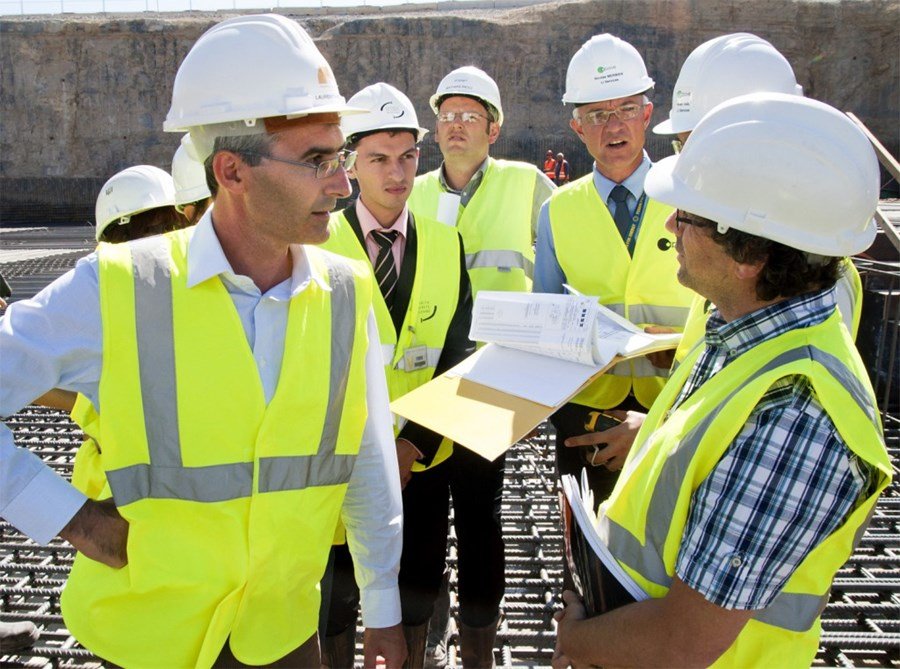How to Prevent Accidents in Forklift Operations in Warehouses
Forklifts are essential in warehouse operations for moving, lifting, and transporting heavy loads. However, forklift accidents are a major safety concern, often resulting in severe injuries or fatalities. It is crucial to follow proper safety guidelines and implement preventive measures to avoid such accidents. Understanding the risks and ways to mitigate them can help reduce hazards. If you’re looking to develop safety expertise, taking the NEBOSH Course in Pakistan can be an excellent start, as it provides comprehensive safety training.
Warehouses should ensure that all employees working with or around forklifts are well-trained, including completing certifications such as NEBOSH in Pakistan, which focuses on various aspects of safety management. This article explores key strategies to prevent accidents in forklift operations in warehouses.
10 Tips
1. Ensuring Proper Forklift Training
Training is the foundation of safety in forklift operations. A well-trained operator can handle equipment properly, understand the machine’s limitations, and avoid potential hazards. Employers must ensure that all forklift operators are certified and undergo continuous training to stay updated on safety protocols. One of the most recognized safety programs is the NEBOSH Course in Pakistan, which covers industrial safety training, including forklift operation.
A certified NEBOSH in Pakistan safety professional will understand the potential dangers in the warehouse environment and implement safety measures effectively. Comprehensive training includes proper handling of equipment, safety checks, understanding the load limits, and knowing how to respond to emergency situations. Inadequate training is a leading cause of forklift accidents, and by investing in the NEBOSH Course in Pakistan, companies can minimize these risks.
2. Conducting Routine Equipment Inspections
Regular forklift inspections are critical in preventing accidents. Mechanical failures such as brake malfunctions, steering issues, or hydraulic problems can lead to severe incidents. Therefore, warehouse managers must establish a schedule for routine maintenance checks.
Before every shift, operators should inspect forklifts for potential issues, such as worn tires, faulty lights, or leaks in hydraulic fluid. Addressing these problems early can prevent malfunctions during operation. An expert trained through the NEBOSH Course in Pakistan will recognize the importance of pre-shift inspections and adherence to safety protocols, further reinforcing safety measures.
3. Implementing Clear Communication Channels
Effective communication is vital in a warehouse environment where forklifts are constantly in motion. Operators and pedestrians need to be aware of each other’s presence to avoid accidents. Using radios, hand signals, or horns is essential to communicate intentions, such as reversing or turning.
Warehouse supervisors should establish protocols for communication, especially in areas where visibility is limited. A clear system of signals can prevent collisions between forklifts and pedestrians. Safety professionals with NEBOSH in Pakistan qualifications are trained to establish these communication protocols to ensure that workers understand their roles in maintaining safety.
4. Setting Speed Limits and Safe Driving Rules
Excessive speed is a significant factor in forklift-related accidents. Forklifts are heavy machines, and operating them at high speeds can result in loss of control. Therefore, warehouses should set speed limits for different areas, particularly where pedestrian traffic is high or where space is limited.
Operators must be trained to adhere to these speed limits and avoid dangerous maneuvers, such as sharp turns or abrupt stops, which can cause the forklift to tip over. A NEBOSH Course in Pakistan educates operators on the importance of speed control and driving protocols in confined spaces, reducing the risk of accidents.
5. Establishing Designated Pedestrian Zones
Separating forklift and pedestrian traffic is one of the most effective ways to prevent accidents. Warehouses should clearly mark pedestrian zones and forklift-only areas, ensuring that both parties are aware of the boundaries.
Installing barriers, railings, or marked walkways can minimize the chances of collisions. Additionally, signs and floor markings can serve as constant reminders to both operators and pedestrians to stay within their designated zones. A NEBOSH in Pakistan safety professional is well-versed in designing such systems, ensuring that the layout of the warehouse promotes safety for everyone involved.
6. Using Proper Load Management Techniques
Improper load handling is another common cause of forklift accidents. Overloading, uneven distribution of weight, or carrying loads that obstruct the operator’s view can result in tipping over or collisions.
Operators must be trained in proper load handling techniques, including checking the load weight before lifting and ensuring that it is balanced correctly on the forks. A well-implemented safety program, like the NEBOSH Course in Pakistan, provides operators with the necessary knowledge to manage loads safely, including understanding load capacity and ensuring visibility while transporting materials.
7. Maintaining Adequate Lighting and Visibility
Poor lighting can be a major risk factor in forklift operations. Dim or poorly lit areas make it difficult for operators to see pedestrians, obstacles, or other hazards. Warehouses should ensure that all areas, especially high-traffic zones, are well-lit.
In addition to proper lighting, operators should use mirrors and sensors to increase visibility. Forklifts can be fitted with alarms and lights that activate when the machine is reversing. This allows both the operator and pedestrians to be more aware of potential hazards. Safety experts trained in NEBOSH in Pakistan understand the importance of these measures and can recommend additional equipment to enhance safety.
8. Establishing Safety Awareness Programs
Promoting a culture of safety within the warehouse is key to accident prevention. Regular safety meetings, workshops, and awareness campaigns should be held to keep safety at the forefront of operations.
A NEBOSH Course in Pakistan not only provides technical knowledge but also emphasizes the importance of fostering a safety-conscious environment. Employees should be encouraged to report any safety concerns, and supervisors should regularly review and update safety protocols to ensure compliance with industry standards.
9. Wearing Personal Protective Equipment (PPE)
Personal Protective Equipment (PPE) is essential for forklift operators and pedestrians working in the warehouse. Helmets, steel-toed boots, and high-visibility vests can protect workers from potential injuries. Warehouses must ensure that PPE is available and mandatory for all employees in the vicinity of forklift operations.
A NEBOSH in Pakistan safety expert can help establish a PPE policy that ensures all workers are properly equipped and trained on how to use the protective gear effectively. PPE acts as the last line of defense in preventing injuries and mitigating risks during forklift operations.
10. Planning Warehouse Layout for Safety
Warehouse layout plays a significant role in preventing forklift accidents. Narrow aisles, cluttered floors, and tight corners increase the chances of collisions and accidents. Warehouse managers should design layouts that prioritize safety, with wide aisles, clear signage, and sufficient space for forklifts to maneuver.
Regularly organizing and decluttering the warehouse floor also reduces the risk of accidents. A safety professional certified through the NEBOSH Course in Pakistan can provide valuable insights into optimizing the warehouse layout to improve operational safety.
Conclusion
Preventing accidents in forklift operations requires a combination of proper training, regular equipment maintenance, clear communication, and safety-conscious warehouse design. Employers should ensure that all forklift operators are well-trained and certified, with regular refresher courses to stay updated on safety standards. Investing in the NEBOSH Course in Pakistan equips workers with the knowledge and skills needed to create a safer work environment.
By following these preventive measures and promoting a culture of safety, warehouses can significantly reduce the risk of forklift accidents, ensuring the safety and well-being of all employees. Additionally, working with a NEBOSH in Pakistan certified safety professional can help tailor these strategies to meet the specific needs of any warehouse operation.






